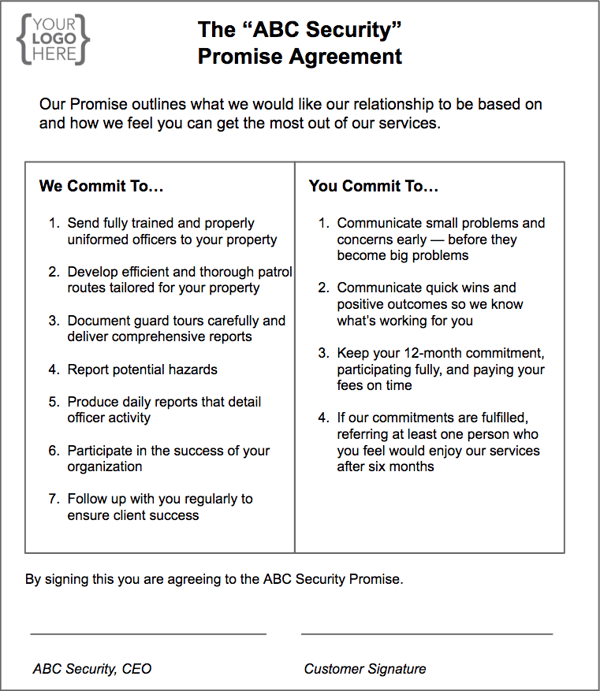The Silvertrac Extra
HOW TO GET REFERRALS BY SETTING EXPECTATIONS EARLY
The first few weeks with a new client can set expectations for the entire life of your contract. After a rocky start, clients see the wins your company delivers in terms of “improvement” instead of “value received.”
The tone of your client relationship makes a big difference when it comes time to ask for referrals. Referrals are an important part of running a successful security company. When you take on a new client, you should already be thinking of ways that you can earn referrals down the road.
Of course, you shouldn’t ask them for a referral right out of the gate. You need to establish a track record for prioritizing client success before that. However, right from the start, you can begin setting their expectations in a way that will generate good referrals down the road.
Why You Need Referrals
When it’s time to make important decisions, most people will leverage their connections for insight into which companies will do the best job. Personal recommendations help you stand out in a crowded industry.
Beyond that, referrals help security companies secure contracts without being the lowest bid. Companies that get consistent referrals can usually avoid joining the race to the bottom that will bleed resources and generate low profits. They are especially valuable for landing commercial properties, which tend to be both lucrative and easier to manage than residential buildings.
That’s not all, though. When you start getting referrals, you cut down on time spent marketing and prospecting; that work is done for you. Good, consistent referrals mean you can spend more resources on improving client relations, which can reduce contract turnover — and lead to more referrals.
Why Clients Are Hesitant
However, clients don’t give out their recommendations easily. Why not?
People value their reputation. If you give a referral to a friend and they have a bad experience, that reflects poorly on you. In order to lock in a referral from a client, you need to be exceeding expectations.
In other instances, happy clients don’t think to reach out to their network for referrals unless you ask them. If no one mentioned the importance of referrals when expectations were set early in the relationship, it may never come up.
Here’s one uncommon tactic that sets bold expectations for your relationship right when you start: a promise statement.
What is a Promise Statement?
A promise statement is a document in which you and your client lay down expectations in writing. More than a service contract, the promise statement helps define the working relationship in clear terms before service begins.
It’s also an opportunity to say “we’re so confident that you’ll get good service, that we’re putting it in writing.”
Here’s a sample:

We commit to:
- Send fully trained and properly uniformed officers to your property
- Develop efficient and thorough patrol routes tailored for your property
- Document guard tours carefully and deliver comprehensive reports
- Report potential hazards
- Produce daily reports that detail officer activity
- Participate in the success of your organization
- Follow up with you regularly to ensure client success
You commit to:
- Communicate small problems and concerns early — before they become big problems
- Communicate quick wins and positive outcomes so we know what’s working for you
- Keep your 12-month commitment, participating fully, and paying your fees on time
- If our commitments are fulfilled, referring at least one person who you feel would enjoy our services after six months
Each party then signs the promise statement to make it official.
What is this document doing to drive referrals? Two big things:
First, it sets the stage for referrals in clear, plain language to start the conversation early on. Referrals are part of the informal agreement, and the client will be more inclined to see their own success in terms of something that warrants a referral. That’s a bold way of saying “we will do such a good job that we’re asking you to commit to spreading the word down the road.”
Second, it promises regular check-ins to ensure client success. By offering a more hands-on approach to security, you’re establishing the company as more than just a vendor — it’s a partnership with your client. When it comes time to ask for a referral, the line of conversation is already open and the pitch seems more natural.
Learn more about how guard management software can drive referrals. Contact us for a demo today.





